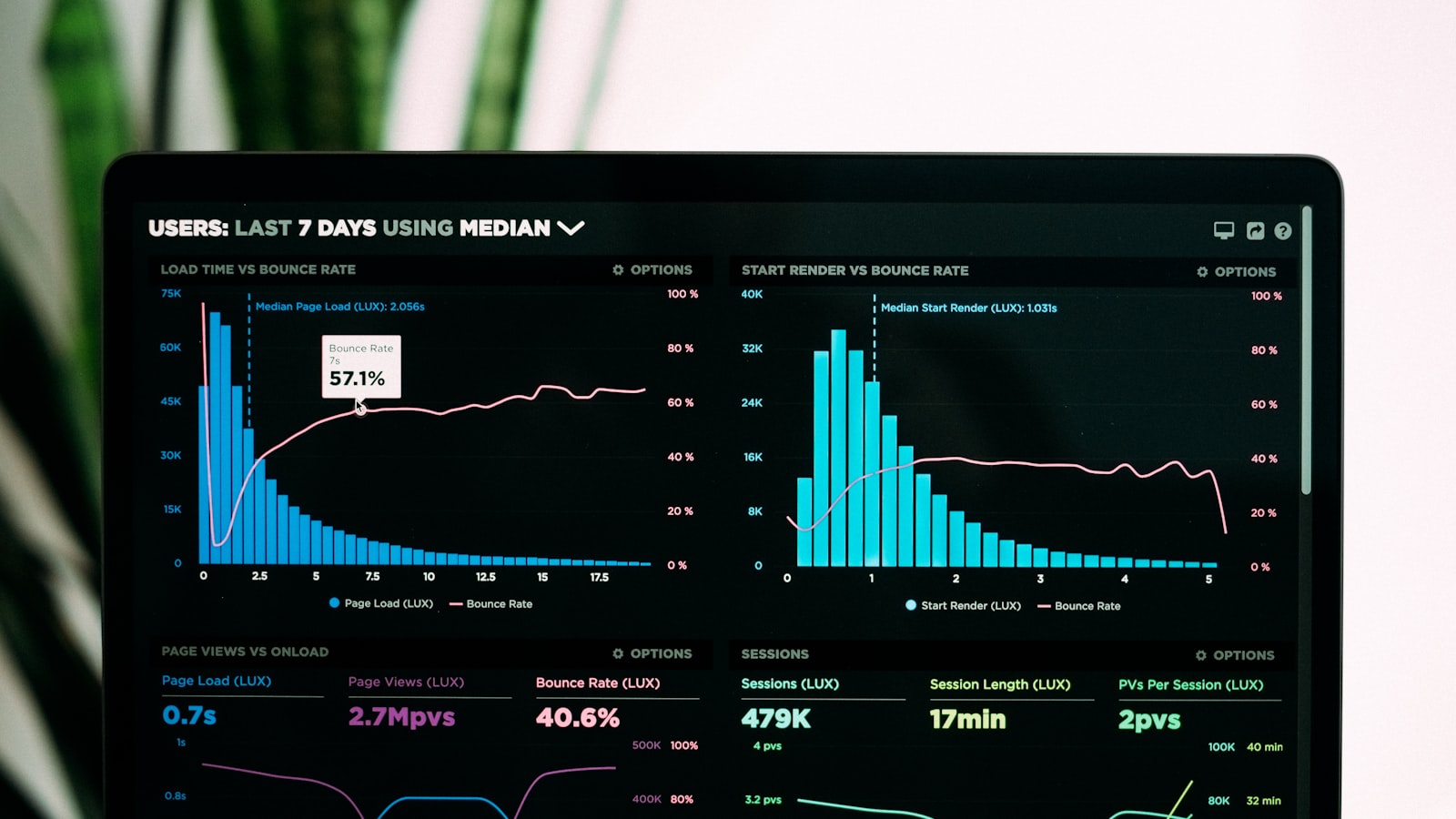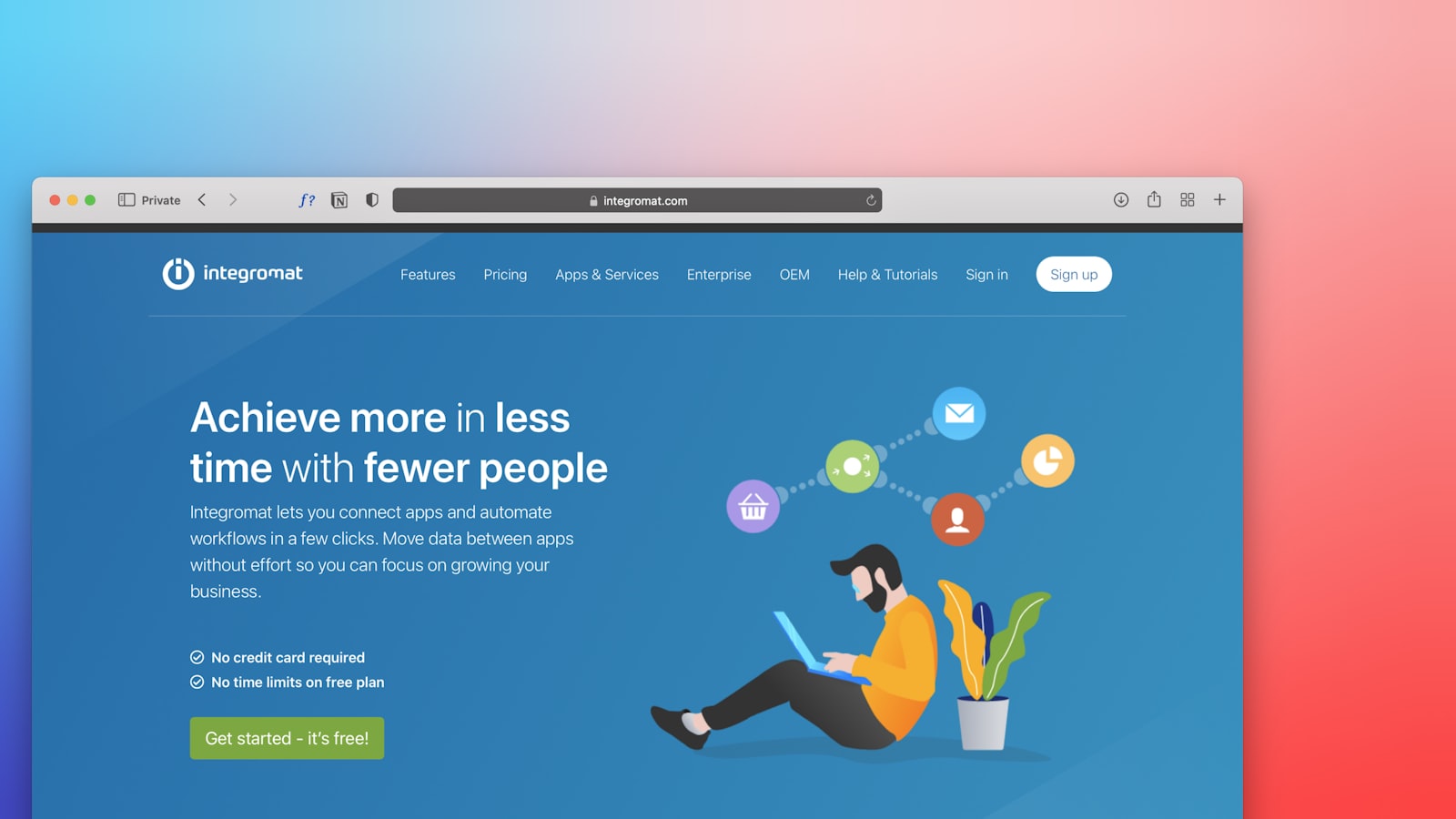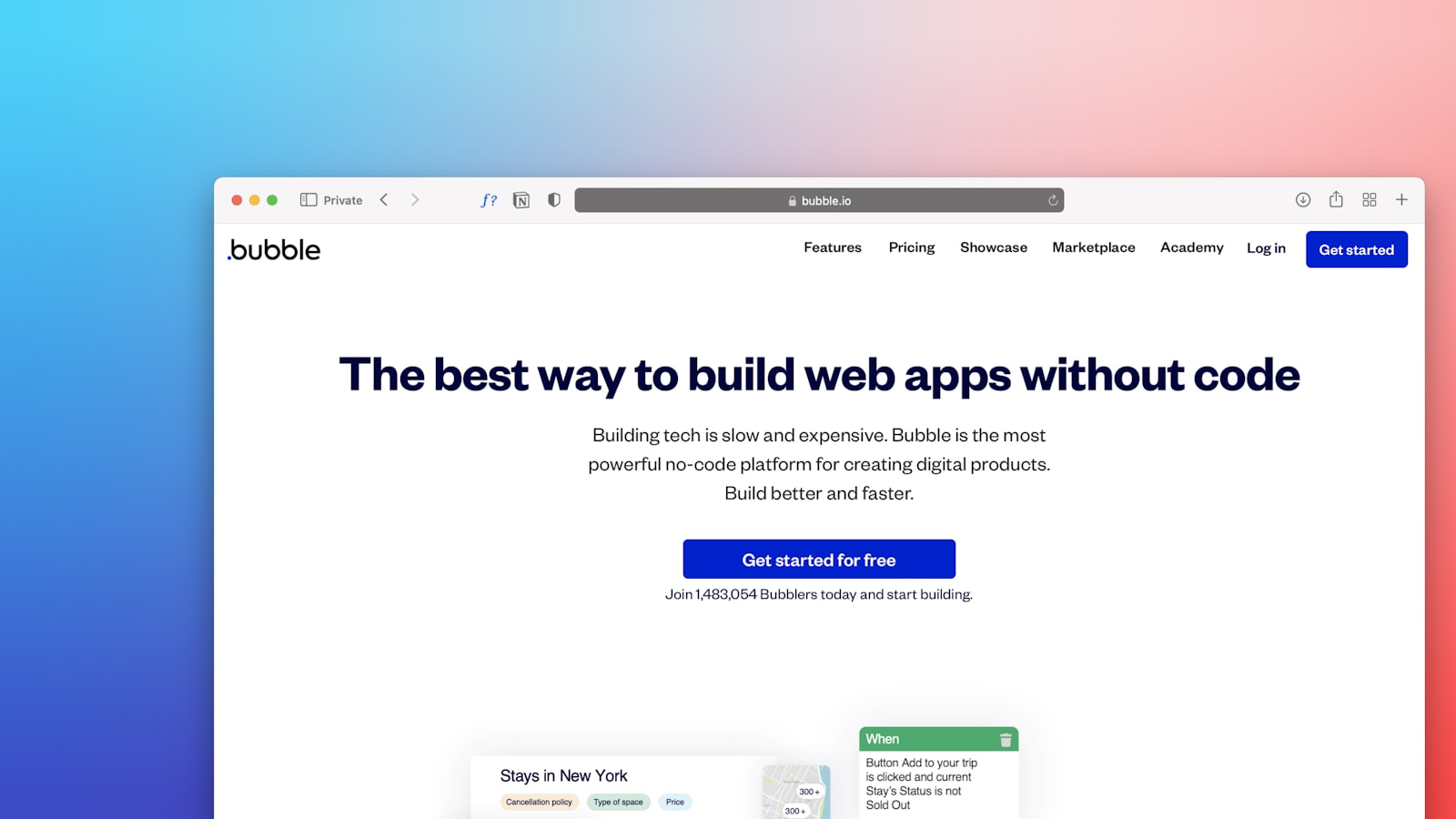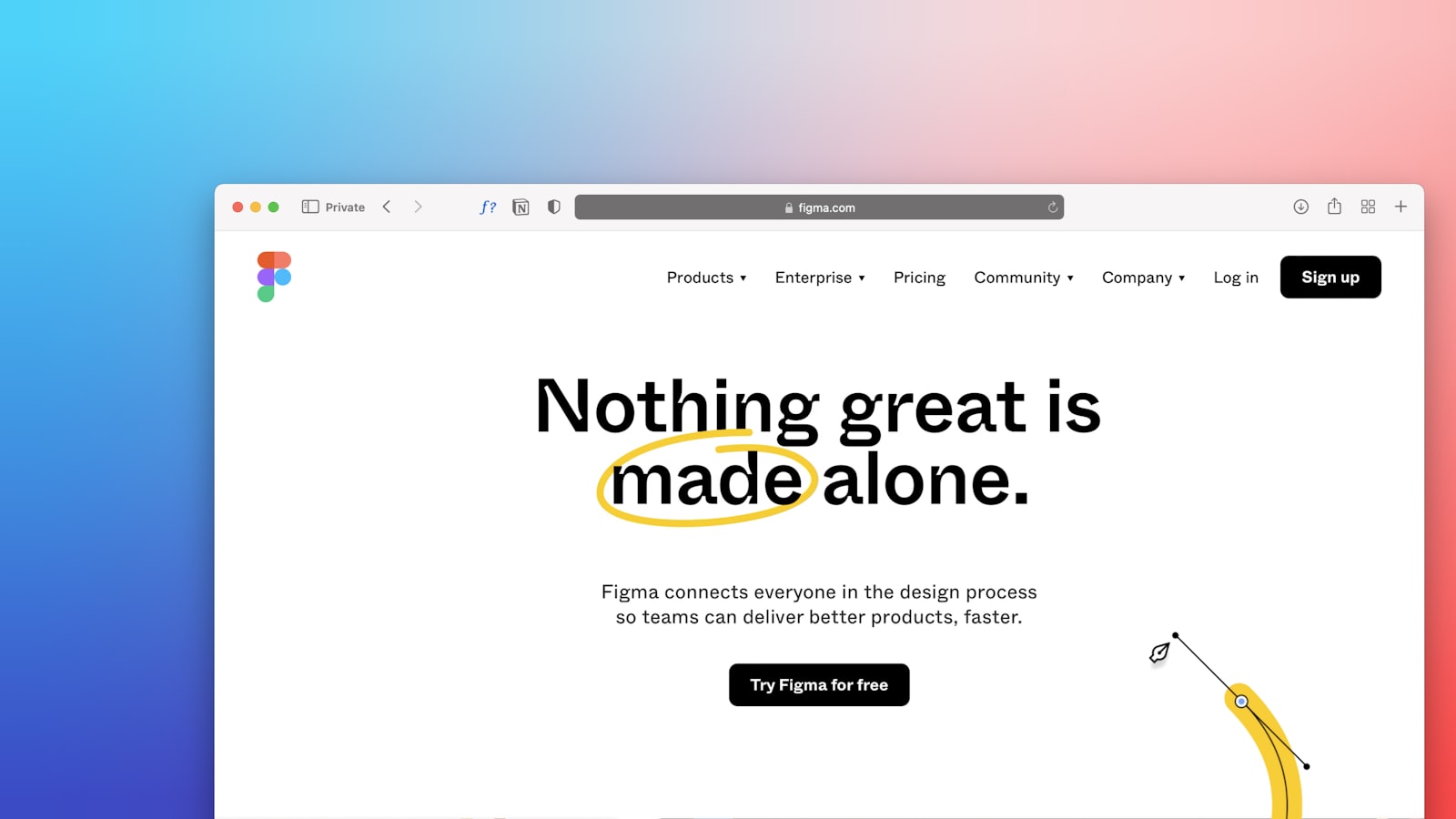How to Develop a Winning B2B Search Marketing Strategy
How to Develop a Winning B2B Search Marketing Strategy
How to Develop a Winning B2B Search Marketing Strategy
Learn how to develop a winning B2B search marketing strategy. Boost your business with effective techniques and tips for B2B search success.
Learn how to develop a winning B2B search marketing strategy. Boost your business with effective techniques and tips for B2B search success.



Introduction to B2B Search Marketing
Ever wondered why your B2B search marketing strategy isn't delivering those sweet, sweet leads? Well, you're in the right place. Buckle up, because we're about to dive into a step-by-step guide that will transform your approach from 'meh' to 'magnificent'.
What is B2B Search Marketing?
B2B search marketing isn't just about throwing some keywords into the digital void and hoping for the best. It's a meticulously crafted strategy designed to connect your business with other businesses who are actively searching for your solutions. Think of it as matchmaking, but with fewer awkward dates and more profitable partnerships.
Importance of B2B Search Marketing
Why should you care about B2B search marketing? Simple. It's your ticket to driving organic traffic, converting leads, and ultimately, boosting revenue without draining your budget on paid ads. With a data-driven, customer-centric strategy, you align your marketing efforts with your business goals and target audience, ensuring your message hits the mark every time.
Key Differences Between B2B and B2C Search Marketing
Let’s clear the air: B2B and B2C search marketing are not the same. While B2C is all about appealing to individual emotions and instant gratification, B2B is a different beast. Here, you’re dealing with longer sales cycles, multiple decision-makers, and a need for in-depth information. Understanding these differences is crucial to developing a winning strategy.
Ready to transform your B2B search marketing game? Stay with us, and let's get those leads rolling in.
Setting the Foundation
Defining Your Business Goals and Objectives
Before you dive into the nitty-gritty of B2B search marketing, it's crucial to define your business goals and objectives. Are you looking to increase brand awareness, generate leads, or drive sales? Setting clear, measurable goals will help you stay focused and track your progress.
For instance, if your goal is to generate leads, you might aim to increase your website's conversion rate by 20% over the next six months. Having specific objectives allows you to tailor your marketing strategies effectively.
Identifying Your Target Audience and Buyer Personas
Understanding Your Audience’s Pain Points
Knowing your audience's pain points is essential for crafting a successful B2B search marketing strategy. What challenges do they face? What solutions are they seeking? Understanding these aspects will help you create content that resonates with them and addresses their needs.
For example, if your audience struggles with inefficient project management, you could create content that offers practical solutions and tools to streamline their processes.
Creating Detailed Buyer Personas
Creating detailed buyer personas is the next step. A buyer persona is a semi-fictional representation of your ideal customer based on market research and real data about your existing customers. Include details like:
Demographics: Age, gender, income, education level
Job Title and Industry: Specific roles and sectors they work in
Challenges and Pain Points: Specific problems they face
Goals and Objectives: What they aim to achieve
For more insights on creating effective buyer personas, check out our guide on developing a high-performing SaaS lead generation strategy.
By understanding your audience and crafting detailed buyer personas, you can tailor your marketing efforts to meet their specific needs, making your B2B search marketing strategy more effective.

Keyword Research and Selection
Importance of Keyword Research in B2B Search Marketing
Keyword research is the backbone of any successful B2B search marketing strategy. It helps businesses understand what their target audience is searching for and how to position their content to meet those needs. By identifying the right keywords, companies can enhance their search engine rankings, drive more organic traffic, and ultimately, boost conversions.
Effective keyword research involves understanding user intent, analyzing search volume, and evaluating competition. This ongoing process ensures that your content stays relevant and continues to attract the right audience.
Tools for Effective Keyword Research
Google Ads Keyword Planner
Google Ads Keyword Planner is a powerful tool for identifying potential keywords. It provides insights into search volume, competition levels, and even suggests related keywords. By leveraging this tool, businesses can make data-driven decisions about which keywords to target.
Moz Keyword Explorer
Moz Keyword Explorer offers a comprehensive suite of features for keyword research. It helps you discover and prioritize the best keywords for your business, analyze keyword difficulty, and track your rankings over time. Moz also provides valuable metrics like search volume and organic click-through rate (CTR).
SEMrush
SEMrush is another essential tool for keyword research. It offers extensive data on keyword performance, including search volume, trends, and competitive analysis. SEMrush also provides insights into your competitors' keywords, helping you identify opportunities to outrank them.
Prioritizing Keywords Based on Relevance, Volume, and Competition
Once you have a list of potential keywords, it's crucial to prioritize them based on relevance, search volume, and competition. Here's how:
Relevance: Ensure the keywords align with your business goals and target audience's intent. Keywords should be directly related to your products, services, or industry.
Search Volume: Focus on keywords with a substantial search volume to attract more traffic. However, balance this with the keyword's relevance to ensure quality leads.
Competition: Evaluate the competition for each keyword. Targeting high-competition keywords can be challenging, so look for a mix of high and low-competition keywords to maximize your chances of ranking.
Using tools like Moz Keyword Explorer, SEMrush, and Google Ads Keyword Planner can help you analyze these factors and make informed decisions.
Remember, keyword research is not a one-time task. Continuously monitor and adjust your keyword strategy to stay ahead of the competition and adapt to changing search trends.

Optimizing Your Website for SEO
On-Page SEO Techniques
Crafting Compelling, Keyword-Rich Content
Creating content that resonates with your audience is crucial. Focus on crafting high-quality, keyword-rich content that addresses your audience's needs and interests. Use your targeted keywords naturally throughout the text, ensuring they appear in titles, headers, and within the body content. Remember, quality trumps quantity every time.
Optimizing Meta Tags and Descriptions
Meta tags and descriptions are your first impression on search engines. Use keyword-rich titles and concise, appealing meta descriptions to draw in potential visitors. While keyword metadata is less critical for rankings, it still helps search engines understand your content.
Using Header Tags Effectively
Header tags (H1, H2, H3, etc.) help organize your content and make it more readable. Use them to break up text and highlight key points. Ensure your primary keyword appears in at least one header tag to boost SEO.
Improving URL Structures
Clean, descriptive URLs improve both user experience and SEO. Include relevant keywords in your URLs and avoid using long strings of numbers or irrelevant characters. For example, www.example.com/b2b-search-marketing is better than www.example.com/page1234.
Technical SEO Best Practices
Ensuring Mobile-Friendliness
With more users accessing websites via mobile devices, having a mobile-friendly site is non-negotiable. Use responsive design to ensure your site looks great and functions well on all devices. Google’s Mobile-Friendly Test tool can help you identify areas for improvement.
Enhancing Site Speed and Performance
Site speed is a critical ranking factor. Compress images, minimize HTTP requests, and use browser caching to improve load times. Tools like Google PageSpeed Insights can provide actionable recommendations to enhance your site's performance.
Creating and Submitting XML Sitemaps
XML sitemaps help search engines understand your site's structure and find all your pages. Create an XML sitemap and submit it to Google Search Console and Bing Webmaster Tools to ensure your site is fully indexed.
Fixing Broken Links and Redirects
Broken links can harm your SEO and user experience. Regularly check for and fix broken links using tools like Screaming Frog. Implement 301 redirects for any removed or moved content to maintain link equity.
Off-Page SEO Strategies
Building High-Quality Backlinks
Backlinks from reputable sites signal to search engines that your content is valuable. Focus on earning high-quality backlinks through guest posts, partnerships, and creating shareable content. Avoid low-quality, spammy links, which can harm your SEO.
Leveraging Social Media for SEO
Social media can drive traffic to your site and indirectly boost your SEO. Share your content on platforms like LinkedIn, Twitter, and Facebook. Engage with your audience to build a community and encourage shares and backlinks.
Guest Posting and Influencer Outreach
Guest posting on industry-relevant blogs and collaborating with influencers can expand your reach and earn valuable backlinks. Focus on building genuine relationships with influencers and providing valuable content that their audience will appreciate.

For more insights on developing a winning B2B search marketing strategy, check out our guide on how to develop and execute a winning SaaS growth strategy.
Leveraging Paid Search (PPC) Campaigns
Introduction to PPC for B2B
Pay-Per-Click (PPC) advertising is a powerful tool for B2B companies looking to drive immediate traffic and generate leads. Unlike organic search, PPC ads appear at the top of search engine results, giving your business instant visibility. Think of PPC as a way to buy visits to your site rather than earning them organically. For B2B, this means reaching decision-makers quickly and efficiently.
Setting Up Effective PPC Campaigns
Choosing the Right Platforms (Google Ads, Bing Ads)
When it comes to PPC, choosing the right platform is crucial. Google Ads is the most popular choice, offering extensive reach and robust tools. However, Bing Ads shouldn't be overlooked, especially since it often has lower competition and cost-per-click (CPC). Evaluate where your target audience spends their time and allocate your budget accordingly.
Crafting High-Converting Ad Copy
Your ad copy needs to grab attention and compel action. Focus on the benefits your product or service offers, use strong call-to-actions (CTAs), and include keywords relevant to your audience. A/B testing different versions of your ad copy can help identify what resonates best with your target market.
Setting Budgets and Bids
Budgeting and bidding are the backbone of a successful PPC campaign. Start by determining your overall budget and then decide how much you're willing to spend per click. Utilize automated bidding strategies provided by platforms like Google Ads to optimize your bids for conversions, ensuring you get the most bang for your buck.
Monitoring and Optimizing PPC Performance
Analyzing Key Metrics (CTR, CPC, Conversion Rate)
Tracking performance metrics is essential for optimizing your PPC campaigns. Key metrics to monitor include Click-Through Rate (CTR), Cost-Per-Click (CPC), and Conversion Rate. High CTR indicates your ads are appealing, while a low CPC means you're getting clicks at a lower cost. Conversion Rate shows how well your ads are turning clicks into leads or sales.
A/B Testing Ad Variations
A/B testing involves running two versions of an ad to see which performs better. Test different headlines, descriptions, and CTAs to find the winning combination. Continuous A/B testing can lead to incremental improvements and better overall campaign performance.
Using Remarketing to Re-Engage Prospects
Remarketing targets users who have previously visited your site but didn't convert. By showing these users tailored ads as they browse other sites, you can re-engage them and encourage them to return. This strategy is particularly effective for B2B businesses, where the buying cycle is longer and involves multiple touchpoints.

For more insights on developing effective PPC strategies, check out our guide on 10 Competitive PPC Tactics to Stay Ahead of the Game.
Integrating SEO and PPC for Maximum Impact

Benefits of Combining SEO and PPC
Combining SEO and PPC can be a game-changer for your B2B search marketing strategy. Here are some key benefits:
Enhanced Visibility: Dominate both organic and paid search results, increasing your brand's presence.
Data Synergy: Use insights from both channels to refine your overall strategy.
Cost Efficiency: Balance your budget by leveraging the strengths of each approach.
Comprehensive Coverage: Reach different segments of your audience through varied touchpoints.
Strategies for Integrated Search Marketing
Sharing Keyword Insights Between SEO and PPC
Sharing keyword data between your SEO and PPC teams can lead to smarter decisions. For example, high-performing PPC keywords can be targeted for organic optimization. Conversely, SEO keywords with high conversion rates can be used in PPC campaigns for immediate impact.
For more on keyword strategies, check out our guide on transactional keyword strategies.
Coordinating Content and Ad Strategies
Aligning your content and ad strategies ensures a cohesive message across all channels. Create content that supports your PPC ads and vice versa. For instance, if your PPC ad promotes a whitepaper, ensure your SEO efforts drive organic traffic to the same resource.
Learn more about content strategies in our article on developing a winning SaaS growth strategy.
Using PPC Data to Inform SEO Efforts
PPC campaigns provide immediate data on what works and what doesn't. Use this data to inform your SEO strategy. If a particular ad copy resonates well, consider incorporating similar language into your meta descriptions and on-page content.
For insights on improving lead quality, visit our lead quality improvement strategies.
Case Studies of Successful Integrated Campaigns
Let's look at some real-world examples of successful integrated SEO and PPC campaigns:
Company A: By sharing keyword insights, Company A saw a 30% increase in organic traffic and a 20% reduction in PPC costs.
Company B: Coordinating content and ad strategies, Company B achieved a 40% boost in lead generation.
Company C: Using PPC data to inform SEO efforts, Company C improved their search rankings for high-value keywords by 25%.
For more case studies and best practices, explore our B2B SaaS SEO tactics.
Measuring Success and Adjusting Strategies
Key Metrics to Track in B2B Search Marketing
Organic Traffic and Rankings
Tracking organic traffic and rankings is essential for understanding your SEO performance. Use tools like Google Analytics to monitor the number of visitors coming from organic search. Additionally, keep an eye on your keyword rankings to see how well your content is performing in search engines.
Paid Search Performance
For paid search campaigns, metrics like Click-Through Rate (CTR), Cost Per Click (CPC), and Conversion Rate are crucial. These metrics help you gauge the effectiveness of your PPC efforts and identify areas for improvement. Platforms like Google Ads and Bing Ads provide detailed reports to help you track these metrics.
Conversion Rates and ROI
Ultimately, the success of your B2B search marketing strategy hinges on conversion rates and Return on Investment (ROI). Track how many visitors are converting into leads or customers and calculate the ROI to ensure your marketing efforts are profitable.
Tools for Measuring and Analyzing Performance
Google Analytics
Google Analytics is a powerhouse for tracking website performance. It provides insights into user behavior, traffic sources, and conversion rates. Set up goals and funnels to measure specific actions and optimize your strategy accordingly.
Google Search Console
Google Search Console helps you monitor your website’s presence in Google search results. It provides data on keyword performance, indexing issues, and mobile usability. Use this tool to ensure your site is search-friendly and to identify opportunities for improvement.
PPC Reporting Tools
Platforms like Google Ads and Bing Ads offer robust reporting tools to analyze your PPC campaigns. These tools provide insights into ad performance, keyword effectiveness, and budget allocation, enabling you to optimize your paid search strategy.
Continuous Improvement and Strategy Adjustment
Conducting Regular Audits
Regular audits are vital for maintaining and improving your search marketing strategy. Assess your website’s SEO health, review your keyword performance, and analyze your content to ensure it aligns with your business goals.
Staying Updated with Industry Trends
The search marketing landscape is constantly evolving. Stay updated with the latest trends and best practices by following industry blogs, attending webinars, and participating in forums. This knowledge will help you adapt your strategy to stay competitive.
Adapting to Algorithm Changes and Market Shifts
Search engine algorithms and market conditions can change rapidly. Be prepared to adjust your strategy in response to these changes. Monitor algorithm updates and market trends to ensure your B2B search marketing efforts remain effective.

For more detailed guidance on developing a winning strategy, check out our related articles on SaaS growth strategies and B2B SaaS SEO tactics.
Conclusion
Recap of Key Points
In this guide, we covered the essential elements of developing a winning B2B search marketing strategy. Here's a quick recap:
Understanding B2B Search Marketing: Grasping the unique aspects and importance of B2B search marketing.
Setting the Foundation: Defining business goals, identifying target audiences, and creating detailed buyer personas.
Keyword Research and Selection: Utilizing tools like Google Ads Keyword Planner, Moz Keyword Explorer, and SEMrush to find the right keywords.
Optimizing Your Website for SEO: Implementing on-page and technical SEO techniques, and building high-quality backlinks.
Leveraging Paid Search (PPC) Campaigns: Setting up effective PPC campaigns and continuously monitoring and optimizing their performance.
Integrating SEO and PPC: Combining efforts for maximum impact by sharing keyword insights and coordinating strategies.
Measuring Success and Adjusting Strategies: Tracking key metrics and using tools like Google Analytics and Google Search Console for performance analysis.
Final Tips for a Successful B2B Search Marketing Strategy
To wrap things up, here are some final tips to ensure your B2B search marketing strategy hits the mark:
Stay Consistent: Regularly update your content and keep your SEO and PPC strategies aligned.
Focus on Quality: High-quality content and backlinks are crucial for long-term success.
Use Data Wisely: Leverage data from both SEO and PPC efforts to refine your strategies continually.
Keep Learning: Stay updated with industry trends and algorithm changes to stay ahead of the competition. For more insights, check out our SaaS growth strategy guide.
Encouragement to Take Action and Experiment
Now that you're armed with the knowledge, it's time to put it into action. Don't be afraid to experiment and tweak your strategies. Success in B2B search marketing comes from continuous learning and adaptation. Remember, every click, conversion, and keyword can provide valuable insights. So, get out there, test your ideas, and watch your business grow!
For more tips on improving your lead quality and conversion rates, visit our lead quality improvement guide.

Introduction to B2B Search Marketing
Ever wondered why your B2B search marketing strategy isn't delivering those sweet, sweet leads? Well, you're in the right place. Buckle up, because we're about to dive into a step-by-step guide that will transform your approach from 'meh' to 'magnificent'.
What is B2B Search Marketing?
B2B search marketing isn't just about throwing some keywords into the digital void and hoping for the best. It's a meticulously crafted strategy designed to connect your business with other businesses who are actively searching for your solutions. Think of it as matchmaking, but with fewer awkward dates and more profitable partnerships.
Importance of B2B Search Marketing
Why should you care about B2B search marketing? Simple. It's your ticket to driving organic traffic, converting leads, and ultimately, boosting revenue without draining your budget on paid ads. With a data-driven, customer-centric strategy, you align your marketing efforts with your business goals and target audience, ensuring your message hits the mark every time.
Key Differences Between B2B and B2C Search Marketing
Let’s clear the air: B2B and B2C search marketing are not the same. While B2C is all about appealing to individual emotions and instant gratification, B2B is a different beast. Here, you’re dealing with longer sales cycles, multiple decision-makers, and a need for in-depth information. Understanding these differences is crucial to developing a winning strategy.
Ready to transform your B2B search marketing game? Stay with us, and let's get those leads rolling in.
Setting the Foundation
Defining Your Business Goals and Objectives
Before you dive into the nitty-gritty of B2B search marketing, it's crucial to define your business goals and objectives. Are you looking to increase brand awareness, generate leads, or drive sales? Setting clear, measurable goals will help you stay focused and track your progress.
For instance, if your goal is to generate leads, you might aim to increase your website's conversion rate by 20% over the next six months. Having specific objectives allows you to tailor your marketing strategies effectively.
Identifying Your Target Audience and Buyer Personas
Understanding Your Audience’s Pain Points
Knowing your audience's pain points is essential for crafting a successful B2B search marketing strategy. What challenges do they face? What solutions are they seeking? Understanding these aspects will help you create content that resonates with them and addresses their needs.
For example, if your audience struggles with inefficient project management, you could create content that offers practical solutions and tools to streamline their processes.
Creating Detailed Buyer Personas
Creating detailed buyer personas is the next step. A buyer persona is a semi-fictional representation of your ideal customer based on market research and real data about your existing customers. Include details like:
Demographics: Age, gender, income, education level
Job Title and Industry: Specific roles and sectors they work in
Challenges and Pain Points: Specific problems they face
Goals and Objectives: What they aim to achieve
For more insights on creating effective buyer personas, check out our guide on developing a high-performing SaaS lead generation strategy.
By understanding your audience and crafting detailed buyer personas, you can tailor your marketing efforts to meet their specific needs, making your B2B search marketing strategy more effective.

Keyword Research and Selection
Importance of Keyword Research in B2B Search Marketing
Keyword research is the backbone of any successful B2B search marketing strategy. It helps businesses understand what their target audience is searching for and how to position their content to meet those needs. By identifying the right keywords, companies can enhance their search engine rankings, drive more organic traffic, and ultimately, boost conversions.
Effective keyword research involves understanding user intent, analyzing search volume, and evaluating competition. This ongoing process ensures that your content stays relevant and continues to attract the right audience.
Tools for Effective Keyword Research
Google Ads Keyword Planner
Google Ads Keyword Planner is a powerful tool for identifying potential keywords. It provides insights into search volume, competition levels, and even suggests related keywords. By leveraging this tool, businesses can make data-driven decisions about which keywords to target.
Moz Keyword Explorer
Moz Keyword Explorer offers a comprehensive suite of features for keyword research. It helps you discover and prioritize the best keywords for your business, analyze keyword difficulty, and track your rankings over time. Moz also provides valuable metrics like search volume and organic click-through rate (CTR).
SEMrush
SEMrush is another essential tool for keyword research. It offers extensive data on keyword performance, including search volume, trends, and competitive analysis. SEMrush also provides insights into your competitors' keywords, helping you identify opportunities to outrank them.
Prioritizing Keywords Based on Relevance, Volume, and Competition
Once you have a list of potential keywords, it's crucial to prioritize them based on relevance, search volume, and competition. Here's how:
Relevance: Ensure the keywords align with your business goals and target audience's intent. Keywords should be directly related to your products, services, or industry.
Search Volume: Focus on keywords with a substantial search volume to attract more traffic. However, balance this with the keyword's relevance to ensure quality leads.
Competition: Evaluate the competition for each keyword. Targeting high-competition keywords can be challenging, so look for a mix of high and low-competition keywords to maximize your chances of ranking.
Using tools like Moz Keyword Explorer, SEMrush, and Google Ads Keyword Planner can help you analyze these factors and make informed decisions.
Remember, keyword research is not a one-time task. Continuously monitor and adjust your keyword strategy to stay ahead of the competition and adapt to changing search trends.

Optimizing Your Website for SEO
On-Page SEO Techniques
Crafting Compelling, Keyword-Rich Content
Creating content that resonates with your audience is crucial. Focus on crafting high-quality, keyword-rich content that addresses your audience's needs and interests. Use your targeted keywords naturally throughout the text, ensuring they appear in titles, headers, and within the body content. Remember, quality trumps quantity every time.
Optimizing Meta Tags and Descriptions
Meta tags and descriptions are your first impression on search engines. Use keyword-rich titles and concise, appealing meta descriptions to draw in potential visitors. While keyword metadata is less critical for rankings, it still helps search engines understand your content.
Using Header Tags Effectively
Header tags (H1, H2, H3, etc.) help organize your content and make it more readable. Use them to break up text and highlight key points. Ensure your primary keyword appears in at least one header tag to boost SEO.
Improving URL Structures
Clean, descriptive URLs improve both user experience and SEO. Include relevant keywords in your URLs and avoid using long strings of numbers or irrelevant characters. For example, www.example.com/b2b-search-marketing is better than www.example.com/page1234.
Technical SEO Best Practices
Ensuring Mobile-Friendliness
With more users accessing websites via mobile devices, having a mobile-friendly site is non-negotiable. Use responsive design to ensure your site looks great and functions well on all devices. Google’s Mobile-Friendly Test tool can help you identify areas for improvement.
Enhancing Site Speed and Performance
Site speed is a critical ranking factor. Compress images, minimize HTTP requests, and use browser caching to improve load times. Tools like Google PageSpeed Insights can provide actionable recommendations to enhance your site's performance.
Creating and Submitting XML Sitemaps
XML sitemaps help search engines understand your site's structure and find all your pages. Create an XML sitemap and submit it to Google Search Console and Bing Webmaster Tools to ensure your site is fully indexed.
Fixing Broken Links and Redirects
Broken links can harm your SEO and user experience. Regularly check for and fix broken links using tools like Screaming Frog. Implement 301 redirects for any removed or moved content to maintain link equity.
Off-Page SEO Strategies
Building High-Quality Backlinks
Backlinks from reputable sites signal to search engines that your content is valuable. Focus on earning high-quality backlinks through guest posts, partnerships, and creating shareable content. Avoid low-quality, spammy links, which can harm your SEO.
Leveraging Social Media for SEO
Social media can drive traffic to your site and indirectly boost your SEO. Share your content on platforms like LinkedIn, Twitter, and Facebook. Engage with your audience to build a community and encourage shares and backlinks.
Guest Posting and Influencer Outreach
Guest posting on industry-relevant blogs and collaborating with influencers can expand your reach and earn valuable backlinks. Focus on building genuine relationships with influencers and providing valuable content that their audience will appreciate.

For more insights on developing a winning B2B search marketing strategy, check out our guide on how to develop and execute a winning SaaS growth strategy.
Leveraging Paid Search (PPC) Campaigns
Introduction to PPC for B2B
Pay-Per-Click (PPC) advertising is a powerful tool for B2B companies looking to drive immediate traffic and generate leads. Unlike organic search, PPC ads appear at the top of search engine results, giving your business instant visibility. Think of PPC as a way to buy visits to your site rather than earning them organically. For B2B, this means reaching decision-makers quickly and efficiently.
Setting Up Effective PPC Campaigns
Choosing the Right Platforms (Google Ads, Bing Ads)
When it comes to PPC, choosing the right platform is crucial. Google Ads is the most popular choice, offering extensive reach and robust tools. However, Bing Ads shouldn't be overlooked, especially since it often has lower competition and cost-per-click (CPC). Evaluate where your target audience spends their time and allocate your budget accordingly.
Crafting High-Converting Ad Copy
Your ad copy needs to grab attention and compel action. Focus on the benefits your product or service offers, use strong call-to-actions (CTAs), and include keywords relevant to your audience. A/B testing different versions of your ad copy can help identify what resonates best with your target market.
Setting Budgets and Bids
Budgeting and bidding are the backbone of a successful PPC campaign. Start by determining your overall budget and then decide how much you're willing to spend per click. Utilize automated bidding strategies provided by platforms like Google Ads to optimize your bids for conversions, ensuring you get the most bang for your buck.
Monitoring and Optimizing PPC Performance
Analyzing Key Metrics (CTR, CPC, Conversion Rate)
Tracking performance metrics is essential for optimizing your PPC campaigns. Key metrics to monitor include Click-Through Rate (CTR), Cost-Per-Click (CPC), and Conversion Rate. High CTR indicates your ads are appealing, while a low CPC means you're getting clicks at a lower cost. Conversion Rate shows how well your ads are turning clicks into leads or sales.
A/B Testing Ad Variations
A/B testing involves running two versions of an ad to see which performs better. Test different headlines, descriptions, and CTAs to find the winning combination. Continuous A/B testing can lead to incremental improvements and better overall campaign performance.
Using Remarketing to Re-Engage Prospects
Remarketing targets users who have previously visited your site but didn't convert. By showing these users tailored ads as they browse other sites, you can re-engage them and encourage them to return. This strategy is particularly effective for B2B businesses, where the buying cycle is longer and involves multiple touchpoints.

For more insights on developing effective PPC strategies, check out our guide on 10 Competitive PPC Tactics to Stay Ahead of the Game.
Integrating SEO and PPC for Maximum Impact

Benefits of Combining SEO and PPC
Combining SEO and PPC can be a game-changer for your B2B search marketing strategy. Here are some key benefits:
Enhanced Visibility: Dominate both organic and paid search results, increasing your brand's presence.
Data Synergy: Use insights from both channels to refine your overall strategy.
Cost Efficiency: Balance your budget by leveraging the strengths of each approach.
Comprehensive Coverage: Reach different segments of your audience through varied touchpoints.
Strategies for Integrated Search Marketing
Sharing Keyword Insights Between SEO and PPC
Sharing keyword data between your SEO and PPC teams can lead to smarter decisions. For example, high-performing PPC keywords can be targeted for organic optimization. Conversely, SEO keywords with high conversion rates can be used in PPC campaigns for immediate impact.
For more on keyword strategies, check out our guide on transactional keyword strategies.
Coordinating Content and Ad Strategies
Aligning your content and ad strategies ensures a cohesive message across all channels. Create content that supports your PPC ads and vice versa. For instance, if your PPC ad promotes a whitepaper, ensure your SEO efforts drive organic traffic to the same resource.
Learn more about content strategies in our article on developing a winning SaaS growth strategy.
Using PPC Data to Inform SEO Efforts
PPC campaigns provide immediate data on what works and what doesn't. Use this data to inform your SEO strategy. If a particular ad copy resonates well, consider incorporating similar language into your meta descriptions and on-page content.
For insights on improving lead quality, visit our lead quality improvement strategies.
Case Studies of Successful Integrated Campaigns
Let's look at some real-world examples of successful integrated SEO and PPC campaigns:
Company A: By sharing keyword insights, Company A saw a 30% increase in organic traffic and a 20% reduction in PPC costs.
Company B: Coordinating content and ad strategies, Company B achieved a 40% boost in lead generation.
Company C: Using PPC data to inform SEO efforts, Company C improved their search rankings for high-value keywords by 25%.
For more case studies and best practices, explore our B2B SaaS SEO tactics.
Measuring Success and Adjusting Strategies
Key Metrics to Track in B2B Search Marketing
Organic Traffic and Rankings
Tracking organic traffic and rankings is essential for understanding your SEO performance. Use tools like Google Analytics to monitor the number of visitors coming from organic search. Additionally, keep an eye on your keyword rankings to see how well your content is performing in search engines.
Paid Search Performance
For paid search campaigns, metrics like Click-Through Rate (CTR), Cost Per Click (CPC), and Conversion Rate are crucial. These metrics help you gauge the effectiveness of your PPC efforts and identify areas for improvement. Platforms like Google Ads and Bing Ads provide detailed reports to help you track these metrics.
Conversion Rates and ROI
Ultimately, the success of your B2B search marketing strategy hinges on conversion rates and Return on Investment (ROI). Track how many visitors are converting into leads or customers and calculate the ROI to ensure your marketing efforts are profitable.
Tools for Measuring and Analyzing Performance
Google Analytics
Google Analytics is a powerhouse for tracking website performance. It provides insights into user behavior, traffic sources, and conversion rates. Set up goals and funnels to measure specific actions and optimize your strategy accordingly.
Google Search Console
Google Search Console helps you monitor your website’s presence in Google search results. It provides data on keyword performance, indexing issues, and mobile usability. Use this tool to ensure your site is search-friendly and to identify opportunities for improvement.
PPC Reporting Tools
Platforms like Google Ads and Bing Ads offer robust reporting tools to analyze your PPC campaigns. These tools provide insights into ad performance, keyword effectiveness, and budget allocation, enabling you to optimize your paid search strategy.
Continuous Improvement and Strategy Adjustment
Conducting Regular Audits
Regular audits are vital for maintaining and improving your search marketing strategy. Assess your website’s SEO health, review your keyword performance, and analyze your content to ensure it aligns with your business goals.
Staying Updated with Industry Trends
The search marketing landscape is constantly evolving. Stay updated with the latest trends and best practices by following industry blogs, attending webinars, and participating in forums. This knowledge will help you adapt your strategy to stay competitive.
Adapting to Algorithm Changes and Market Shifts
Search engine algorithms and market conditions can change rapidly. Be prepared to adjust your strategy in response to these changes. Monitor algorithm updates and market trends to ensure your B2B search marketing efforts remain effective.

For more detailed guidance on developing a winning strategy, check out our related articles on SaaS growth strategies and B2B SaaS SEO tactics.
Conclusion
Recap of Key Points
In this guide, we covered the essential elements of developing a winning B2B search marketing strategy. Here's a quick recap:
Understanding B2B Search Marketing: Grasping the unique aspects and importance of B2B search marketing.
Setting the Foundation: Defining business goals, identifying target audiences, and creating detailed buyer personas.
Keyword Research and Selection: Utilizing tools like Google Ads Keyword Planner, Moz Keyword Explorer, and SEMrush to find the right keywords.
Optimizing Your Website for SEO: Implementing on-page and technical SEO techniques, and building high-quality backlinks.
Leveraging Paid Search (PPC) Campaigns: Setting up effective PPC campaigns and continuously monitoring and optimizing their performance.
Integrating SEO and PPC: Combining efforts for maximum impact by sharing keyword insights and coordinating strategies.
Measuring Success and Adjusting Strategies: Tracking key metrics and using tools like Google Analytics and Google Search Console for performance analysis.
Final Tips for a Successful B2B Search Marketing Strategy
To wrap things up, here are some final tips to ensure your B2B search marketing strategy hits the mark:
Stay Consistent: Regularly update your content and keep your SEO and PPC strategies aligned.
Focus on Quality: High-quality content and backlinks are crucial for long-term success.
Use Data Wisely: Leverage data from both SEO and PPC efforts to refine your strategies continually.
Keep Learning: Stay updated with industry trends and algorithm changes to stay ahead of the competition. For more insights, check out our SaaS growth strategy guide.
Encouragement to Take Action and Experiment
Now that you're armed with the knowledge, it's time to put it into action. Don't be afraid to experiment and tweak your strategies. Success in B2B search marketing comes from continuous learning and adaptation. Remember, every click, conversion, and keyword can provide valuable insights. So, get out there, test your ideas, and watch your business grow!
For more tips on improving your lead quality and conversion rates, visit our lead quality improvement guide.

Introduction to B2B Search Marketing
Ever wondered why your B2B search marketing strategy isn't delivering those sweet, sweet leads? Well, you're in the right place. Buckle up, because we're about to dive into a step-by-step guide that will transform your approach from 'meh' to 'magnificent'.
What is B2B Search Marketing?
B2B search marketing isn't just about throwing some keywords into the digital void and hoping for the best. It's a meticulously crafted strategy designed to connect your business with other businesses who are actively searching for your solutions. Think of it as matchmaking, but with fewer awkward dates and more profitable partnerships.
Importance of B2B Search Marketing
Why should you care about B2B search marketing? Simple. It's your ticket to driving organic traffic, converting leads, and ultimately, boosting revenue without draining your budget on paid ads. With a data-driven, customer-centric strategy, you align your marketing efforts with your business goals and target audience, ensuring your message hits the mark every time.
Key Differences Between B2B and B2C Search Marketing
Let’s clear the air: B2B and B2C search marketing are not the same. While B2C is all about appealing to individual emotions and instant gratification, B2B is a different beast. Here, you’re dealing with longer sales cycles, multiple decision-makers, and a need for in-depth information. Understanding these differences is crucial to developing a winning strategy.
Ready to transform your B2B search marketing game? Stay with us, and let's get those leads rolling in.
Setting the Foundation
Defining Your Business Goals and Objectives
Before you dive into the nitty-gritty of B2B search marketing, it's crucial to define your business goals and objectives. Are you looking to increase brand awareness, generate leads, or drive sales? Setting clear, measurable goals will help you stay focused and track your progress.
For instance, if your goal is to generate leads, you might aim to increase your website's conversion rate by 20% over the next six months. Having specific objectives allows you to tailor your marketing strategies effectively.
Identifying Your Target Audience and Buyer Personas
Understanding Your Audience’s Pain Points
Knowing your audience's pain points is essential for crafting a successful B2B search marketing strategy. What challenges do they face? What solutions are they seeking? Understanding these aspects will help you create content that resonates with them and addresses their needs.
For example, if your audience struggles with inefficient project management, you could create content that offers practical solutions and tools to streamline their processes.
Creating Detailed Buyer Personas
Creating detailed buyer personas is the next step. A buyer persona is a semi-fictional representation of your ideal customer based on market research and real data about your existing customers. Include details like:
Demographics: Age, gender, income, education level
Job Title and Industry: Specific roles and sectors they work in
Challenges and Pain Points: Specific problems they face
Goals and Objectives: What they aim to achieve
For more insights on creating effective buyer personas, check out our guide on developing a high-performing SaaS lead generation strategy.
By understanding your audience and crafting detailed buyer personas, you can tailor your marketing efforts to meet their specific needs, making your B2B search marketing strategy more effective.

Keyword Research and Selection
Importance of Keyword Research in B2B Search Marketing
Keyword research is the backbone of any successful B2B search marketing strategy. It helps businesses understand what their target audience is searching for and how to position their content to meet those needs. By identifying the right keywords, companies can enhance their search engine rankings, drive more organic traffic, and ultimately, boost conversions.
Effective keyword research involves understanding user intent, analyzing search volume, and evaluating competition. This ongoing process ensures that your content stays relevant and continues to attract the right audience.
Tools for Effective Keyword Research
Google Ads Keyword Planner
Google Ads Keyword Planner is a powerful tool for identifying potential keywords. It provides insights into search volume, competition levels, and even suggests related keywords. By leveraging this tool, businesses can make data-driven decisions about which keywords to target.
Moz Keyword Explorer
Moz Keyword Explorer offers a comprehensive suite of features for keyword research. It helps you discover and prioritize the best keywords for your business, analyze keyword difficulty, and track your rankings over time. Moz also provides valuable metrics like search volume and organic click-through rate (CTR).
SEMrush
SEMrush is another essential tool for keyword research. It offers extensive data on keyword performance, including search volume, trends, and competitive analysis. SEMrush also provides insights into your competitors' keywords, helping you identify opportunities to outrank them.
Prioritizing Keywords Based on Relevance, Volume, and Competition
Once you have a list of potential keywords, it's crucial to prioritize them based on relevance, search volume, and competition. Here's how:
Relevance: Ensure the keywords align with your business goals and target audience's intent. Keywords should be directly related to your products, services, or industry.
Search Volume: Focus on keywords with a substantial search volume to attract more traffic. However, balance this with the keyword's relevance to ensure quality leads.
Competition: Evaluate the competition for each keyword. Targeting high-competition keywords can be challenging, so look for a mix of high and low-competition keywords to maximize your chances of ranking.
Using tools like Moz Keyword Explorer, SEMrush, and Google Ads Keyword Planner can help you analyze these factors and make informed decisions.
Remember, keyword research is not a one-time task. Continuously monitor and adjust your keyword strategy to stay ahead of the competition and adapt to changing search trends.

Optimizing Your Website for SEO
On-Page SEO Techniques
Crafting Compelling, Keyword-Rich Content
Creating content that resonates with your audience is crucial. Focus on crafting high-quality, keyword-rich content that addresses your audience's needs and interests. Use your targeted keywords naturally throughout the text, ensuring they appear in titles, headers, and within the body content. Remember, quality trumps quantity every time.
Optimizing Meta Tags and Descriptions
Meta tags and descriptions are your first impression on search engines. Use keyword-rich titles and concise, appealing meta descriptions to draw in potential visitors. While keyword metadata is less critical for rankings, it still helps search engines understand your content.
Using Header Tags Effectively
Header tags (H1, H2, H3, etc.) help organize your content and make it more readable. Use them to break up text and highlight key points. Ensure your primary keyword appears in at least one header tag to boost SEO.
Improving URL Structures
Clean, descriptive URLs improve both user experience and SEO. Include relevant keywords in your URLs and avoid using long strings of numbers or irrelevant characters. For example, www.example.com/b2b-search-marketing is better than www.example.com/page1234.
Technical SEO Best Practices
Ensuring Mobile-Friendliness
With more users accessing websites via mobile devices, having a mobile-friendly site is non-negotiable. Use responsive design to ensure your site looks great and functions well on all devices. Google’s Mobile-Friendly Test tool can help you identify areas for improvement.
Enhancing Site Speed and Performance
Site speed is a critical ranking factor. Compress images, minimize HTTP requests, and use browser caching to improve load times. Tools like Google PageSpeed Insights can provide actionable recommendations to enhance your site's performance.
Creating and Submitting XML Sitemaps
XML sitemaps help search engines understand your site's structure and find all your pages. Create an XML sitemap and submit it to Google Search Console and Bing Webmaster Tools to ensure your site is fully indexed.
Fixing Broken Links and Redirects
Broken links can harm your SEO and user experience. Regularly check for and fix broken links using tools like Screaming Frog. Implement 301 redirects for any removed or moved content to maintain link equity.
Off-Page SEO Strategies
Building High-Quality Backlinks
Backlinks from reputable sites signal to search engines that your content is valuable. Focus on earning high-quality backlinks through guest posts, partnerships, and creating shareable content. Avoid low-quality, spammy links, which can harm your SEO.
Leveraging Social Media for SEO
Social media can drive traffic to your site and indirectly boost your SEO. Share your content on platforms like LinkedIn, Twitter, and Facebook. Engage with your audience to build a community and encourage shares and backlinks.
Guest Posting and Influencer Outreach
Guest posting on industry-relevant blogs and collaborating with influencers can expand your reach and earn valuable backlinks. Focus on building genuine relationships with influencers and providing valuable content that their audience will appreciate.

For more insights on developing a winning B2B search marketing strategy, check out our guide on how to develop and execute a winning SaaS growth strategy.
Leveraging Paid Search (PPC) Campaigns
Introduction to PPC for B2B
Pay-Per-Click (PPC) advertising is a powerful tool for B2B companies looking to drive immediate traffic and generate leads. Unlike organic search, PPC ads appear at the top of search engine results, giving your business instant visibility. Think of PPC as a way to buy visits to your site rather than earning them organically. For B2B, this means reaching decision-makers quickly and efficiently.
Setting Up Effective PPC Campaigns
Choosing the Right Platforms (Google Ads, Bing Ads)
When it comes to PPC, choosing the right platform is crucial. Google Ads is the most popular choice, offering extensive reach and robust tools. However, Bing Ads shouldn't be overlooked, especially since it often has lower competition and cost-per-click (CPC). Evaluate where your target audience spends their time and allocate your budget accordingly.
Crafting High-Converting Ad Copy
Your ad copy needs to grab attention and compel action. Focus on the benefits your product or service offers, use strong call-to-actions (CTAs), and include keywords relevant to your audience. A/B testing different versions of your ad copy can help identify what resonates best with your target market.
Setting Budgets and Bids
Budgeting and bidding are the backbone of a successful PPC campaign. Start by determining your overall budget and then decide how much you're willing to spend per click. Utilize automated bidding strategies provided by platforms like Google Ads to optimize your bids for conversions, ensuring you get the most bang for your buck.
Monitoring and Optimizing PPC Performance
Analyzing Key Metrics (CTR, CPC, Conversion Rate)
Tracking performance metrics is essential for optimizing your PPC campaigns. Key metrics to monitor include Click-Through Rate (CTR), Cost-Per-Click (CPC), and Conversion Rate. High CTR indicates your ads are appealing, while a low CPC means you're getting clicks at a lower cost. Conversion Rate shows how well your ads are turning clicks into leads or sales.
A/B Testing Ad Variations
A/B testing involves running two versions of an ad to see which performs better. Test different headlines, descriptions, and CTAs to find the winning combination. Continuous A/B testing can lead to incremental improvements and better overall campaign performance.
Using Remarketing to Re-Engage Prospects
Remarketing targets users who have previously visited your site but didn't convert. By showing these users tailored ads as they browse other sites, you can re-engage them and encourage them to return. This strategy is particularly effective for B2B businesses, where the buying cycle is longer and involves multiple touchpoints.

For more insights on developing effective PPC strategies, check out our guide on 10 Competitive PPC Tactics to Stay Ahead of the Game.
Integrating SEO and PPC for Maximum Impact

Benefits of Combining SEO and PPC
Combining SEO and PPC can be a game-changer for your B2B search marketing strategy. Here are some key benefits:
Enhanced Visibility: Dominate both organic and paid search results, increasing your brand's presence.
Data Synergy: Use insights from both channels to refine your overall strategy.
Cost Efficiency: Balance your budget by leveraging the strengths of each approach.
Comprehensive Coverage: Reach different segments of your audience through varied touchpoints.
Strategies for Integrated Search Marketing
Sharing Keyword Insights Between SEO and PPC
Sharing keyword data between your SEO and PPC teams can lead to smarter decisions. For example, high-performing PPC keywords can be targeted for organic optimization. Conversely, SEO keywords with high conversion rates can be used in PPC campaigns for immediate impact.
For more on keyword strategies, check out our guide on transactional keyword strategies.
Coordinating Content and Ad Strategies
Aligning your content and ad strategies ensures a cohesive message across all channels. Create content that supports your PPC ads and vice versa. For instance, if your PPC ad promotes a whitepaper, ensure your SEO efforts drive organic traffic to the same resource.
Learn more about content strategies in our article on developing a winning SaaS growth strategy.
Using PPC Data to Inform SEO Efforts
PPC campaigns provide immediate data on what works and what doesn't. Use this data to inform your SEO strategy. If a particular ad copy resonates well, consider incorporating similar language into your meta descriptions and on-page content.
For insights on improving lead quality, visit our lead quality improvement strategies.
Case Studies of Successful Integrated Campaigns
Let's look at some real-world examples of successful integrated SEO and PPC campaigns:
Company A: By sharing keyword insights, Company A saw a 30% increase in organic traffic and a 20% reduction in PPC costs.
Company B: Coordinating content and ad strategies, Company B achieved a 40% boost in lead generation.
Company C: Using PPC data to inform SEO efforts, Company C improved their search rankings for high-value keywords by 25%.
For more case studies and best practices, explore our B2B SaaS SEO tactics.
Measuring Success and Adjusting Strategies
Key Metrics to Track in B2B Search Marketing
Organic Traffic and Rankings
Tracking organic traffic and rankings is essential for understanding your SEO performance. Use tools like Google Analytics to monitor the number of visitors coming from organic search. Additionally, keep an eye on your keyword rankings to see how well your content is performing in search engines.
Paid Search Performance
For paid search campaigns, metrics like Click-Through Rate (CTR), Cost Per Click (CPC), and Conversion Rate are crucial. These metrics help you gauge the effectiveness of your PPC efforts and identify areas for improvement. Platforms like Google Ads and Bing Ads provide detailed reports to help you track these metrics.
Conversion Rates and ROI
Ultimately, the success of your B2B search marketing strategy hinges on conversion rates and Return on Investment (ROI). Track how many visitors are converting into leads or customers and calculate the ROI to ensure your marketing efforts are profitable.
Tools for Measuring and Analyzing Performance
Google Analytics
Google Analytics is a powerhouse for tracking website performance. It provides insights into user behavior, traffic sources, and conversion rates. Set up goals and funnels to measure specific actions and optimize your strategy accordingly.
Google Search Console
Google Search Console helps you monitor your website’s presence in Google search results. It provides data on keyword performance, indexing issues, and mobile usability. Use this tool to ensure your site is search-friendly and to identify opportunities for improvement.
PPC Reporting Tools
Platforms like Google Ads and Bing Ads offer robust reporting tools to analyze your PPC campaigns. These tools provide insights into ad performance, keyword effectiveness, and budget allocation, enabling you to optimize your paid search strategy.
Continuous Improvement and Strategy Adjustment
Conducting Regular Audits
Regular audits are vital for maintaining and improving your search marketing strategy. Assess your website’s SEO health, review your keyword performance, and analyze your content to ensure it aligns with your business goals.
Staying Updated with Industry Trends
The search marketing landscape is constantly evolving. Stay updated with the latest trends and best practices by following industry blogs, attending webinars, and participating in forums. This knowledge will help you adapt your strategy to stay competitive.
Adapting to Algorithm Changes and Market Shifts
Search engine algorithms and market conditions can change rapidly. Be prepared to adjust your strategy in response to these changes. Monitor algorithm updates and market trends to ensure your B2B search marketing efforts remain effective.

For more detailed guidance on developing a winning strategy, check out our related articles on SaaS growth strategies and B2B SaaS SEO tactics.
Conclusion
Recap of Key Points
In this guide, we covered the essential elements of developing a winning B2B search marketing strategy. Here's a quick recap:
Understanding B2B Search Marketing: Grasping the unique aspects and importance of B2B search marketing.
Setting the Foundation: Defining business goals, identifying target audiences, and creating detailed buyer personas.
Keyword Research and Selection: Utilizing tools like Google Ads Keyword Planner, Moz Keyword Explorer, and SEMrush to find the right keywords.
Optimizing Your Website for SEO: Implementing on-page and technical SEO techniques, and building high-quality backlinks.
Leveraging Paid Search (PPC) Campaigns: Setting up effective PPC campaigns and continuously monitoring and optimizing their performance.
Integrating SEO and PPC: Combining efforts for maximum impact by sharing keyword insights and coordinating strategies.
Measuring Success and Adjusting Strategies: Tracking key metrics and using tools like Google Analytics and Google Search Console for performance analysis.
Final Tips for a Successful B2B Search Marketing Strategy
To wrap things up, here are some final tips to ensure your B2B search marketing strategy hits the mark:
Stay Consistent: Regularly update your content and keep your SEO and PPC strategies aligned.
Focus on Quality: High-quality content and backlinks are crucial for long-term success.
Use Data Wisely: Leverage data from both SEO and PPC efforts to refine your strategies continually.
Keep Learning: Stay updated with industry trends and algorithm changes to stay ahead of the competition. For more insights, check out our SaaS growth strategy guide.
Encouragement to Take Action and Experiment
Now that you're armed with the knowledge, it's time to put it into action. Don't be afraid to experiment and tweak your strategies. Success in B2B search marketing comes from continuous learning and adaptation. Remember, every click, conversion, and keyword can provide valuable insights. So, get out there, test your ideas, and watch your business grow!
For more tips on improving your lead quality and conversion rates, visit our lead quality improvement guide.

Need help with SEO?
Need help with SEO?
Need help with SEO?
Join our 5-day free course on how to use AI to get more traffic to your website!
Explode your organic traffic and generate red-hot leads without spending a fortune on ads
Claim the top spot on search rankings for the most lucrative keywords in your industry
Cement your position as the undisputed authority in your niche, fostering unshakable trust and loyalty
Skyrocket your conversion rates and revenue with irresistible, customer-centric content
Conquer untapped markets and expand your reach by seizing hidden keyword opportunities
Liberate your time and resources from tedious content tasks, so you can focus on scaling your business
Gain laser-sharp insights into your ideal customers' minds, enabling you to create products and content they can't resist
Harness the power of data-driven decision-making to optimize your marketing for maximum impact
Achieve unstoppable, long-term organic growth without being held hostage by algorithm updates or ad costs
Stay light-years ahead of the competition by leveraging cutting-edge AI to adapt to any market shift or customer trend
Explode your organic traffic and generate red-hot leads without spending a fortune on ads
Claim the top spot on search rankings for the most lucrative keywords in your industry
Cement your position as the undisputed authority in your niche, fostering unshakable trust and loyalty
Skyrocket your conversion rates and revenue with irresistible, customer-centric content
Conquer untapped markets and expand your reach by seizing hidden keyword opportunities
Liberate your time and resources from tedious content tasks, so you can focus on scaling your business
Gain laser-sharp insights into your ideal customers' minds, enabling you to create products and content they can't resist
Harness the power of data-driven decision-making to optimize your marketing for maximum impact
Achieve unstoppable, long-term organic growth without being held hostage by algorithm updates or ad costs
Stay light-years ahead of the competition by leveraging cutting-edge AI to adapt to any market shift or customer trend
Explode your organic traffic and generate red-hot leads without spending a fortune on ads
Claim the top spot on search rankings for the most lucrative keywords in your industry
Cement your position as the undisputed authority in your niche, fostering unshakable trust and loyalty
Skyrocket your conversion rates and revenue with irresistible, customer-centric content
Conquer untapped markets and expand your reach by seizing hidden keyword opportunities
Liberate your time and resources from tedious content tasks, so you can focus on scaling your business
Gain laser-sharp insights into your ideal customers' minds, enabling you to create products and content they can't resist
Harness the power of data-driven decision-making to optimize your marketing for maximum impact
Achieve unstoppable, long-term organic growth without being held hostage by algorithm updates or ad costs
Stay light-years ahead of the competition by leveraging cutting-edge AI to adapt to any market shift or customer trend


































































































































































































































































































































